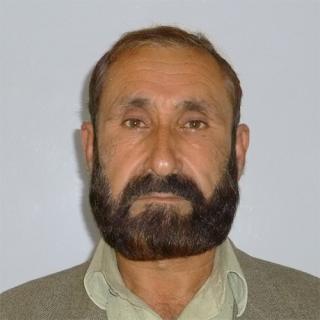In 2013 responsibility for security in Afghanistan was handed over to Afghan forces, while international troops continued their departure. As the security situation deteriorated, humanitarian needs grew. Civilians bore the brunt of the fighting, which caused death, injury and displacement, and impeded access to essential services. Many lost their mainly agriculture-based livelihoods; infrastructure, where not destroyed, was in disrepair. The fragmentation of the political and military landscape and the volatility of the situation complicated matters, blurring communication lines and further restricting access. Humanitarian workers continued to be attacked. On 29 May, the ICRC subdelegation in Jalalabad was targeted, resulting in the killing of Basheer and injuries to others.
While we sought to reduce the risks to staff, the ICRC remained committed to providing humanitarian assistance in Afghanistan; hence, following the partial suspension of our activities after the Jalalabad attack, we resumed operations with a revised set-up, adjusting some programmes and working with fewer offices and with some staff members based abroad.
The Afghan Red Crescent Society (ARCS) and the ICRC faced difficulties throughout the year in reaching many parts of the country and in conducting our activities. For instance, the main armed group sporadically placed restrictions on the transport of ICRC supplies, often disrupting the delivery of aid. We therefore focused on maintaining and developing our dialogue with the parties to the conflict, with a view to furthering their understanding of the ARCS’ and the ICRC’s work and improving access to people affected by conflict. Our delegates continued to visit detainees under Afghan, NATO/ International Security Assistance Force (ISAF) and US authority according to standard ICRC procedures and shared their findings and recommendations confidentially with the authorities concerned.
We also worked to effect long-term improvement in conflict-affected communities. We enlisted community support in rehabilitating irrigation systems and other damaged infrastructure in exchange for food or cash, which helped people earn an income and boosted communal resources. We assisted communities in resuming and protecting income-generating activities through microcredits, animal health programmes and provision of agricultural supplies. We supported the repair and construction of water systems to improve water quality and sanitation in rural and urban areas.
More than 52,000 inpatients and nearly 265,000 outpatients were treated at the Health Ministry-run Mirwais hospital in Kandahar (420 beds) and Sheberghan hospital in Jawzjan (150 beds). Both hospitals received regular, comprehensive ICRC support. Civilians also accessed health care at 44 ARCS clinics and one ICRC-supported community-run health centre in Korengal, near Jalalabad. Over one million patients received consultations at the clinics while thousands, including pregnant women and babies, were vaccinated.
Some 94,000 disabled Afghans benefited from physiotherapy and prosthetic/orthotic devices provided by one component factory and seven ICRC-run physical rehabilitation centres managed by disabled employees educated and trained with ICRC assistance.
